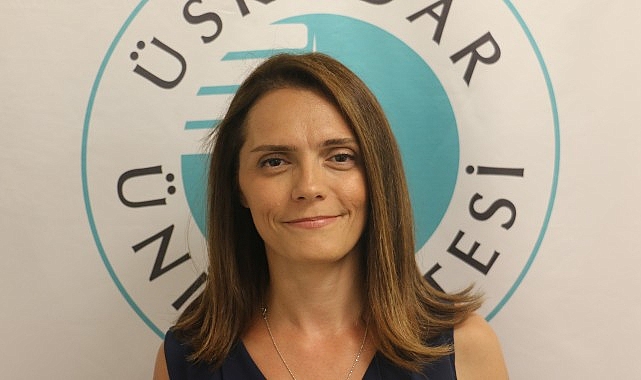
Experts who stated that the losses, which is one of the biggest strains of the old age, are experienced quite heavily with the disaster that occurred in Kahramanmaraş; He states that the most intensely observed emotions in elderly individuals after disasters are fear, loss, mourning, grief and depressive mood. Instructor See. İdil Arasan Doğan advises elderly individuals to create safe spaces, to protect their privacy, and to try to facilitate their harmony with products such as water, prayer beads and pillows, accompanied by suggestive discourses such as ‘everything will be fine’ in a calm tone during the post-disaster period.
Üsküdar University Institute of Social Sciences applied psychology lecturer İdil Arasan Doğan made evaluations about the emotional states experienced by elderly individuals in sudden disaster situations and shared important recommendations for their psychological well-being.
Normal life should be provided quickly for the elderly person
Instructor See. İdil Arasan Doğan said, ‘Disaster situations appear as a sudden change in the conditions in which elderly individuals have adapted, and it is a difficult process created by how to adapt to these changes’ and continued her words as follows:
“The important thing in this process is to provide a normal life for the elderly person as soon as possible. The main goal is to repair the ruptures experienced after disasters, when beliefs about the body, emotions or the world are shaken, and to re-establish these connections with the relations and supports to be established. First of all, it should be tried to understand the anxiety and physical condition of psychological first aid without intervention, but direct questions should not be asked about psychological problems. The key here is psychological triage. It is very important that the officials who will do this have the necessary training and know what to do when. Particularly, the fragile situations created by the disaster processes increase the fragility that can be experienced with the unique processes of the old age period. Unfortunately, many elderly people were affected by the unique and unique Kahramanmaraş-centered earthquake in our country. The fact that our elderly people staying in the nursing home were in need of help, not knowing what to do afterward, also revealed the desperation of the situation.”
They react to sudden losses in different ways
Emphasizing that the losses, which are one of the greatest difficulties of the old age, are experienced quite severely with this disaster, applied psychology lecturer Doğan said, “Older individuals face many losses such as loss of peers, loss of spouse, loss of role as of their period. On the other hand, the elderly respond to the losses experienced in disasters such as sudden and unexpected earthquakes in different dimensions according to them. In addition, denial of reality, forgetfulness due to attacks of possible and existing dementia, regression in cognitive activities, desire to be alone and withdrawal symptoms are seen intensely. When they cannot solve the problem with what they think as a solution, tension and anxiety increase. These processes result in disorientation and deterioration in behavioral processes in the elderly individual.” he said.
They experience fear, grief and mourning
Stating that the most intensely observed emotions in elderly individuals after sudden disasters such as earthquakes are fear, loss, mourning, grief and depressive mood. See. İdil Arasan Doğan said, “The anticipatory emotions that occur here can be explained as fear, the loss that occurs as a reaction, the feeling of grief and apathy that accompanies the law, and the situation that can be expressed as depression. In order for the elderly to overcome this trauma with the least damage, it is very important that interpersonal support mechanisms are activated and care processes are activated immediately. In this context, if it is necessary to quickly transport relatives, have food and water available, and send them to a place, decision priority is required.” said.
Needs should be available
Instructor See. İdil Arasan Doğan said that the water given in the process facilitates the adaptation and calming of the elderly and continued her words as follows:
“Other objects for harmony can be thought of as products such as rosaries and pillows. In addition, the ability of the elderly to survive disasters with the least damage depends on the creation of their safe spaces, accompanied by psychosocial activities based on the principle of ‘being there at the moment’ and inspiring discourses such as ‘everything will be fine’ in a calm tone. At this point, it can be said that practices such as observing their privacy, having spares of the medicines, glasses and hearing aids they use ready in advance, having a pre-existing locator if the elderly have dementia, and using a jewelry with their name are among the preventive and protective interventions at this point. In addition, if the elderly person is a patient with Alzheimer’s, he will probably not stay where he left off, so care should be taken. It is also very critical to provide training for those who support the disaster area on communication with the elderly and dementia patients. Along with these, it is very valuable to establish emergency disaster care centers that will be kept ready.”
Interdisciplinary cooperation comes to the fore
Stating that interpersonal approaches on the basis of geriatrics and geropsychiatry, reviewing life, and group-based studies on the activation of cognitive functions will be effective in these processes where interdisciplinary cooperation is very important, Lecturer. See. İdil Arasan Doğan said, “As an instillation of hope, ensuring the social participation of the elderly individual and supporting the sense of usefulness can be seen as the most valuable positive intervention in the process. In addition, psychoeducation on old age and elderly care for family members and caregivers, care center workers or other service providers with whom the elderly person lives and is in contact will contribute to our mental health as an aging society and function as a preventive mechanism in emergency disaster situations. will see.” used the phrases.

